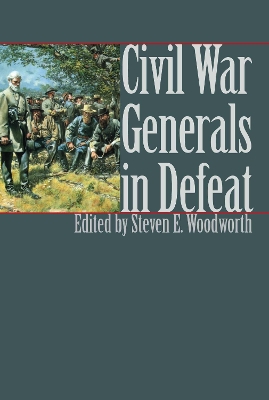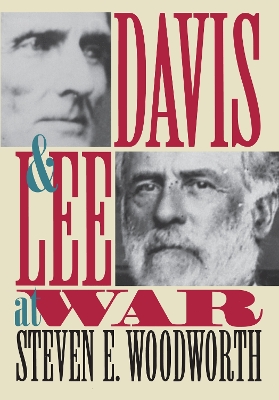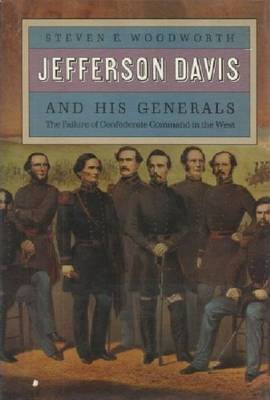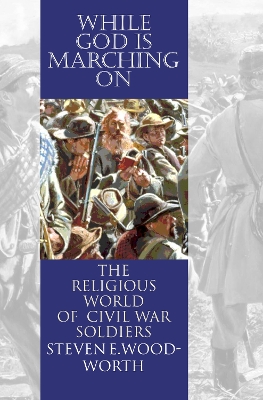Modern War Studies
4 total works
By looking more closely at Civil War generals who have borne the stigma of failure, these authors reject the reductionist view that significant defeats were due simply to poor generalship. Analyzing men who might be considered capable failures--officers of high pre-war reputation, some with distinguished records in the Civil War--they examine the various reasons these men suffered defeat, whether flaws of character, errors of judgment, lack of preparation, or circumstance beyond their control.
These seven case studies consider Confederate and Union generals evenhandedly. They show how Albert Sidney Johnston failed in the face of extreme conditions and inadequate support; how Joe Hooker and John C. Pemberton were outmatched in confrontations with Lee and Grant; how George B. McClellan in the Peninsula Campaign and Don Carlos Buell at Chattanooga faced political as well as military complications; and how Joseph E. Johnston failed to adapt to challenges in Virginia. An additional chapter looks at generals from both sides at the Battle of Gettysburg, showing how failure to adjust to circumstances can thwart even the most seasoned leader's expectations.
There is far more to be learned in trying to understand how and why a general fell short, observes Steven Woodworth, than there is in multiplying denunciations of his alleged stupidity. Civil War Generals in Defeat successfully addresses that need. It is a provocative book that seeks not to rehabilitate reputations but to enlarge our understanding of the nature and limitations of military command.
Woodworth argues that Davis and Robert E. Lee, the South's greatest military leader, had sharply conflicting views over the proper conduct of the war. Davis was convinced that the South should fight a defensive war, to simply outlast the North's political and popular support for the war. By contrast, Lee and the other eastern generals-notably P.G.T. Beauregard, Gustavus Smith, and Stonewall Jackson-were eager for the offensive. They were convinced that only quick and decisive battlefield victories would prevent the North from eventually defeating them with its overwhelming advantage in men and materials.
Davis and Lee, Woodworth shows, shared a mutual respect for each other for most of the war. But it was respect mixed with a stubborn resistance to the other's influence. The result of this tense tug-of-war was Davis's misguided pursuit of a middle ground that gave neither strategy its best chance for success. The war finally ground to a bloody conclusion with Davis as indecisive as ever and virtually blind to how little confidence his generals had in his leadership.
Drawing extensively upon the papers of Jefferson Davis and the works of leading Civil War historians, Woodworth places the eastern military campaigns in an entirely new light and expands our understanding of Davis as leader of the Confederacy.
No 16
Through the diaries, letters, and reminiscences of common soldiers, Woodworth illuminates religious belief from the home front to the battlefield, where thoughts of death and the afterlife were always close at hand. Woodworth reveals what these men thought about God and what they believed God thought about the war.
Wrote one Unionist, "I believe our cause to be the cause of liberty and light . . . the cause of God, and holy and justifiable in His sight, and for this reason, I fear not to die in it if need be." With a familiar echo, his Confederate counterpart declared that "our Cause is Just and God is Just and we shall finally be successful whether I live to see the time or not."
Woodworth focuses on mainstream Protestant beliefs and practices shared by the majority of combatants in order to help us better understand soldiers' motivations and to realize what a strong role religion played in American life throughout the conflict. In addition, he provides sharp insights into the relationship between Christianity and both the abolition movement in the North and the institution of slavery in the South.
Ultimately, Woodworth shows us how opposing armies could put their trust in the same God while engaging in four years of organized slaughter and destruction. His compelling work provides a rich new perspective on religion in American life and will forever change the way we look at the Civil War.



